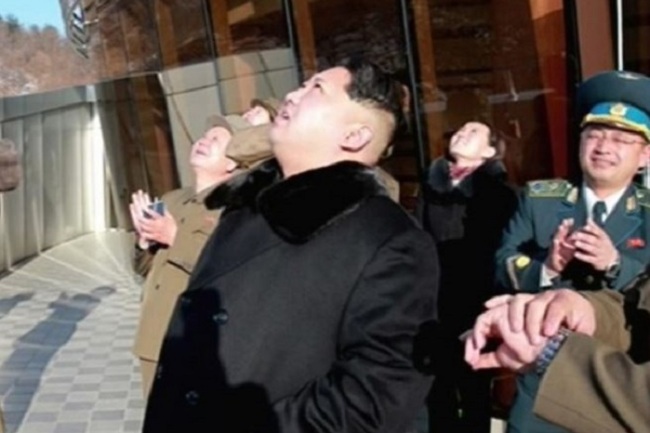North Korea still faces limits in securing atmospheric reentry technology, a core element to complete its intercontinental ballistic missile program, a parliamentary source said Friday.
The source said that an official of the National Intelligence Service made the remarks during a session of the National Assembly's Intelligence Committee on Thursday.
"(The NIS said that) the North had recently carried out a few missile engine tests, but it is still not at a stage where it can complete its ICBM development," the source told Yonhap News Agency on condition of anonymity.

(Yonhap)
In July, Pyongyang conducted two tests on the "Hwasong-14" ICBM capable of striking the continental United States. The communist regime has claimed it succeeded in developing reentry technology, but Seoul and Washington remain skeptical.
In its quest for an operational ICBM, securing reentry technology remains the toughest challenge. As an ICBM reenters the atmosphere and falls at a top speed of Mach 24, it must withstand temperatures of 6,000-7,000 C.
The NIS also pointed out that the North is grappling with financial constraints in its weapons development due to crippling international sanctions and the waste of funds from a fusillade of previous tests, the source said.
Touching on the possibility of another missile launch, the NIS said the North could resume its provocations "any time," but it apparently feels pressure from Washington's recent show of force through its deployment of strategic military assets such as nuclear-powered aircraft carriers and bombers.
In September, the NIS forecast that the North could carry out missile tests around key national events such as its regime foundation day on Sept. 9 or the anniversary of its ruling party's foundation on Oct. 10.
Since mid-September when it fired a missile over Japan, Pyongyang has not engaged in any major provocations.
Pyongyang's push for an ICBM has spawned concerns in Seoul. Observers say the prospect of an ICBM attack could lead Washington to dither on whether to immediately defend its ally under attack given that any military action could put US cities at risk.
Some believe the North has been sticking to the ICBM program in part to "decouple" Seoul and Washington by posing a direct threat to US security. But the allies have reaffirmed their resolve against Pyongyang's military adventurism. (Yonhap)






